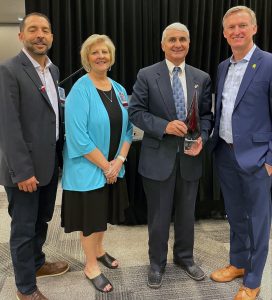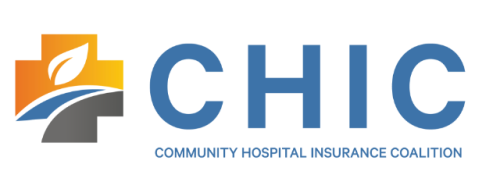How Rural Hospitals are Winning the War on Employee Retention
Uvalde Memorial Hospital Wins TORCH Light Award
DOL Issues Guidance on FMLA and Mental Health Conditions
How to Prepare Your Business For an Active Shooter
What You Should Know About Monkeypox
How Rural Hospitals are Winning the War on Employee Retention
Collaboration and culture combat the great resignation at rural hospitals
by Brant Couch CIC, CPA
What would you do if your Chief Nursing Officer resigned just days after you became the hospital’s CEO?
If you’re Traci Thibodeaux, the CEO at Beauregard Health System in DeRidder, Louisiana, you look for help and guidance from other hospital CEOs and then you get into action.
Traci, along with two other hospital CEOs, participated in a panel discussion I moderated called “Collaborative Conversations Across State Lines” at the annual spring conference hosted by the Texas Organization of Rural and Community Hospitals (TORCH) in April 2022.
Each of the panelists agreed that managing their workforce has been, and will continue to be, one of their greatest challenges.
From the outset of the discussion, it was very clear that staffing agencies were not the solution but part of the problem.
The Rise and Fall of Staffing Agencies?
Traci said, “We’re done with staffing agencies.”
Raymond (R.D.) Williams, CEO at Hendry Regional Medical Center in Clewiston, Florida agreed saying, “We would love to disengage from staffing agencies and are working steadily to get off of that train.”
Angela Ammons, CEO at Clinch Memorial Hospital in Homerville, Georgia said her hospital has gone beyond cutting staffing agencies loose. She said that by starting their own internal agency and offering direct contracts to would-be employees, “We’ve cut out the middle person and now have a much better chance of finding the best people to fill the vacancies.”
R. D. and Angela both commented that the fees paid to staffing agencies were unsustainable. Additionally, the portion of those fees that eventually end up in the pockets of the employees is much less than what the hospital pays. R. D. cited one example in which his hospital was paying $110 an hour for a lab tech travel contractor who in turn was being paid only $37 an hour by the agency.
The difference between what agencies charge and what is actually paid to the contracting employee is part of why Clinch Memorial’s internal agency is succeeding. “While we are paying a lot less per hour but the employees on contract are seeing a lot more income go into their pockets,” Angela said.
Inside and Outside Staffing Solutions
Clinch Memorial’s internal agency has been a success from the start but it’s not the only strategy Angela and her team are leveraging. They have engaged a global recruiting firm called PassportUSA to bring in nurses on long-term contracts from countries such as the Philippines.
Contributing to the success of this strategy is Clinch’s willingness to invest in their new employees. The hospital purchased a housing complex to provide affordable accommodations for nurses and it provides new recruits with a gift certificate for purchasing scrubs plus one free meal per day in the hospital’s dining facility.
Taking care of staff, differently, is something R. D. Williams says has gained a lot of traction at Hendry Regional as well. Led by the Chief Nursing Officer, Dakota Redd, a human-centric leadership style focusing on work environment and culture has caused dramatic results. “We have gone from 41% to single-digit turnover,” R.D. said.
The hospital has adopted some of the philosophy and practices of Shawn Achor, the international best-selling author of “The Happiness Advantage”. In a nutshell, Achor advises replacing the traditional “success first, happiness second” mindset with the opposite. Citing well-documented, decades-long research, Achor says, “…happiness is the precursor of success, not merely the result… happiness and optimism actually fuel performance and achievement…”
For R.D. and the Hendry Regional team, this means that instead of looking at the negative, they celebrate the other 95% of the things that are meeting the benchmarks set in the hospital’s business plan. It’s working; in addition to sharply lower turnover, R.D. said, “It may be coincidental, but we are seeing some of those who left for financial opportunities come back – coming home.”
Traci too has sought help beyond the walls of the hospital to nurture a more human-centric culture at Beauregard.
The multi-pronged strategy included working as a beta test site for a group of Vizient nurses, who conducted monthly on-site sessions that included learning, engagement, sharing, and coaching. “Based on our pre and post-program assessments, this exercise was therapeutic for all,” Traci said.
Diving even deeper into culture building, Traci’s team engaged Emergenetics, a firm specializing in helping managers understand how employees prefer to think and behave. They promise that this work “…can create an inclusive, inspiring workplace that attracts, engages, and retains the world’s top talent.” Once employee assessments were completed and the management team debriefed, Traci said, “We’ve started working our way through the organization. These principles shape how we design our communications using a combination of data, stories, testimonies, pictures, marching orders, and vision.”
This led to placing dry-erase “Communication Boards” in every department to capture issues, concerns, questions, and updates from any department member 24-7. It also led to the abandonment of the legacy “static” Intranet in favor of Workplace, Facebook’s organization communication platform.
Traci explained, “We use Workplace to provide up-to-date policy access, and it’s staff portal to welcome and introduce new employees, and post-education videos and virtual Town Halls. Employees can direct message anyone in the organization directly through the platform – including senior leadership and me, the CEO. We are really trying to meet the tech-savvy generations where they are… on their devices.”
Results Speak
While all three panelists were glad to generally share their positive results and expectations of future progress, Traci was quite specific.
In a subsequent e-mail, she said, “Despite COVID, the devastation caused by Hurricane Laura, launching a new EMR, staff burnout and turnover, and the divisive vaccine mandate issue, we have improved in every single category in our most recent employee engagement survey compared to Q1 in 2020. And we’re outperforming the national average in Press Ganey’s key categories.
- Engagement Indicator: 4.21 (+0.18 above Nat’l Avg)
- Resilience Indicator: 4.25 (+0.14 above Nat’l)
- Safety Culture Index: 4.09 (+0.13 above Nat’l)
- Team Index: 57% of groups in Tier I (up from 45%)
- Leader Index: 93 (improved 2 points)
By strategically working on strengthening culture and workforce engagement, all three CEOs are seeing dividends and, as Traci says, “We are becoming the employer of choice in our market.”
If you would like to learn more about what CEOs like Angela, Traci, and R.D. are doing to ensure the sustained success of their hospitals and protect the health of their communities, please feel free to contact me. Remember, never go it alone.
Uvalde Memorial Hospital Wins TORCH Light Award
Thomas Nordwick, CEO of Uvalde Memorial Hospital in Uvalde, TX, accepted the TORCH Light Award during the Texas Organization of Rural and Community Hospitals (TORCH) conference held in Dallas April 19-21st.

The TORCH Light Award acknowledges exceptional progress in patient and employee safety programs that enable hospitals to reduce risk while improving quality and safety in the hospital. Sponsored by HealthSure, the TORCH insurance program manager, the award shines a light on innovative management strategies that reduce the cost of risk and insurance and allow hospitals to use surplus risk management resources to improve other areas of operation. The honor also includes a monetary grant from HealthSure to invest in safety programs for the hospital.
Each year the Insurance Committee of the TORCH board receives nominations for member hospitals who have demonstrated exceptional progress with safety and loyalty in the program. This year Uvalde Memorial Hospital won the nomination for having excellent performance in the areas of risk management and people initiatives.
The committee recognized some of the hospital’s many achievements such as ranking #24 in Modern Healthcare’s 2021 Best Place to Work, receiving the 2021 Pinnacle of Excellence Award for Employee Engagement and earning silver recognition from the American Heart Association in 2020 for taking steps to build a culture of health in the workplace.
Uvalde Memorial Hospital has been an active participant in the TORCH insurance program for over 15 years and CEO Thomas Nordwick is also an active member in the Community Hospital Insurance Coalition.
HealthSure, under the banner “Never Go It Alone” has been an influential and respected partner to the Texas healthcare industry for over two decades. As an active TORCH partner, HealthSure has earned the status of endorsed vendor along with its pivotal role as insurance program manager.
We want to acknowledge the community of Uvalde after the recent tragedy. We recognize all the hard work Uvalde Memorial Hospital continues doing as they support their community during this difficult time.
DOL Issues Guidance on FMLA and Mental Health Conditions
How to Prepare Your Business For an Active Shooter
This resource outlines how employers can  prepare for and respond to an active shooter situation.
prepare for and respond to an active shooter situation.
What You Should Know About Monkeypox



